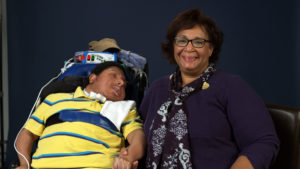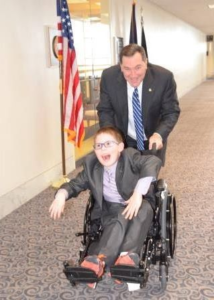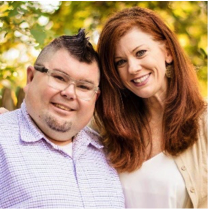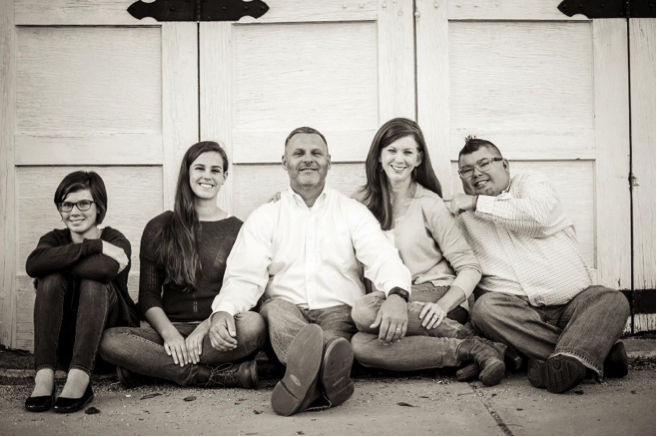The Arc Responds to Texas Court of Criminal Appeals Ruling in Bobby Moore Case
Washington, DC – Earlier this week, the Texas Court of Criminal Appeals (CCA) ruled that Bobby Moore did not have intellectual disability and could, therefore, be executed in Texas. The 5-3 CCA decision ignored the request of State prosecutors who—in light of last year’s U.S. Supreme Court ruling in Moore v. Texas—urged the CCA to find that Mr. Moore did meet the criteria for intellectual disability and should therefore have his sentence commuted to life in prison rather than be subject to the death penalty in violation of the Eighth Amendment to the U.S. Constitution prohibiting cruel and unusual punishment.
“The facts in this case are clear—so much so that prosecutors acknowledged that Mr. Moore met the criteria for intellectual disability following the Supreme Court’s decision—and Mr. Moore should therefore be protected by Supreme Court decisions that ban the execution of persons with intellectual disability as cruel and unusual punishment under the Eighth Amendment. The Arc will continue fighting for the rights of people with intellectual and developmental disabilities, and in the aftermath of this case we will only increase our legal advocacy efforts to ensure that the Supreme Court’s decisions are upheld and justice is appropriately served,” said Peter Berns, CEO of The Arc.
Last year, the U.S. Supreme Court vacated the CCA’s prior decision finding that Mr. Moore did not meet the criteria for intellectual disability and could be executed based on its use of stereotypical and outdated factors—instead of well-established clinical standards—to determine intellectual disability in death penalty cases. Judge Elsa Alcala who authored the CCA’s dissenting opinion this week, issued a strong rebuke to the majority: “this Court has set forth an unconstitutional standard for intellectual disability that continues to permit consideration of wholly subjective, non-clinical factors and stereotypes…This Court’s approach…is eerily reminiscent of the seven Briseno factors that were held to be unconstitutional by the Supreme Court.”
The Arc of the United States and The Arc of Texas filed an amicus brief with the CCA in support of Mr. Moore, joining a broad range of prominent entities and individuals with diverse perspectives and views on the death penalty who filed briefs urging the CCA to grant relief for Mr. Moore. The Arc’s amicus brief noted that the framework established by the Supreme Court requiring courts to consult clinical standards in making intellectual disability determinations in death penalty cases laid a sound foundation for the CCA to determine that Mr. Moore meets the criteria for intellectual disability and cannot be executed.
In her dissent, Judge Alcala cited The Arc’s amicus brief, noting that it “correctly observe[s] that ‘there is a wide gap between the clinical definition and expectations that many laypeople have about intellectual disability…these ‘common misimpressions include beliefs that people with intellectual disability are essentially identical to one another and that all are incapable of any but the most rudimentary tasks.’”
In its 2002 decision in Atkins v. Virginia, the U.S. Supreme Court recognized the special risk of wrongful execution faced by persons with ID and banned the execution of persons with ID as cruel and unusual punishment under the Eighth Amendment. Subsequently, in Hall v. Florida (2014), the Court rejected an arbitrary cutoff for IQ scores in making the intellectual disability determination and emphasized the importance of courts consulting clinical standards in their analysis. Most recently, in Moore v. Texas (2017), the Court rejected Texas’ use of stereotypical and outdated factors—rather than well-established clinical standards—to determine intellectual disability in death penalty cases on the grounds that they “create an unacceptable risk that persons with intellectual disability will be executed.”
The Arc has deep sympathy for the family and friends of the victim in this case, and we supported appropriate punishment of all responsible parties. The Arc did not seek to eliminate punishment of Mr. Moore or others with disabilities, but rather, to ensure that justice is served and the rights of all parties are protected. The Arc is committed to seeking lawful outcomes for people with ID and will continue working to ensure that the U.S. Supreme Court rulings on this issue are abided by in jurisdictions across the country.
The Arc advocates for and serves people with intellectual and developmental disabilities (IDD), including Down syndrome, autism, Fetal Alcohol Spectrum Disorders, cerebral palsy and other diagnoses. The Arc has a network of nearly 650 chapters across the country promoting and protecting the human rights of people with IDD and actively supporting their full inclusion and participation in the community throughout their lifetimes and without regard to diagnosis.


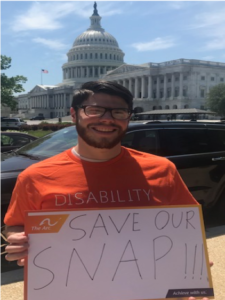 As my Paul Marchand Policy Internship at The Arc’s national office in Washington, DC comes to a close, I want to reflect on the importance of advocacy.
As my Paul Marchand Policy Internship at The Arc’s national office in Washington, DC comes to a close, I want to reflect on the importance of advocacy.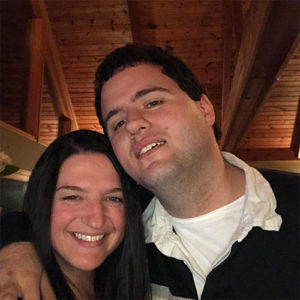 My home state of Illinois still has seven state-run institutions for people with intellectual and developmental disabilities (IDD) open. In 2018, 37 states still have institutions where people with IDD live institutional lives away from their families and communities. Some may recall the horrible investigative reports that showed the terrible conditions in institutions, but fail to realize that they still exist — and that state and federal government dollars are still funding them. The Arc of the United States was founded by families like mine trying to eliminate the need for those institutions, and to get their family members with disabilities back home and included in their communities. While we have come a long way, there is still much to do from state capitals to DC.
My home state of Illinois still has seven state-run institutions for people with intellectual and developmental disabilities (IDD) open. In 2018, 37 states still have institutions where people with IDD live institutional lives away from their families and communities. Some may recall the horrible investigative reports that showed the terrible conditions in institutions, but fail to realize that they still exist — and that state and federal government dollars are still funding them. The Arc of the United States was founded by families like mine trying to eliminate the need for those institutions, and to get their family members with disabilities back home and included in their communities. While we have come a long way, there is still much to do from state capitals to DC.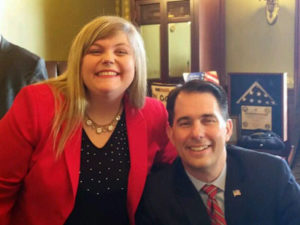
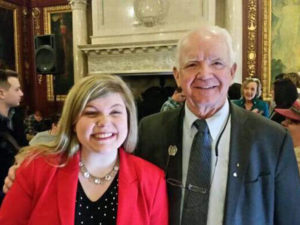
 Meet Joe Damiano! Joe is 23 years old and is a very active advocate in his home state of New York. Joe is the outreach director for The Arc’s National Council of Self-Advocates, a board member for a local non-profit, and the former chair of a self-advocacy group called the Collaborative of New York.
Meet Joe Damiano! Joe is 23 years old and is a very active advocate in his home state of New York. Joe is the outreach director for The Arc’s National Council of Self-Advocates, a board member for a local non-profit, and the former chair of a self-advocacy group called the Collaborative of New York.